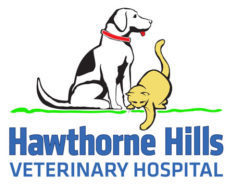Educational Articles
-
Lidocaine/lidocaine combinations topical are local anesthetics that provide anesthesia (a numbing effect) to the skin in cats, dogs, and other animals. Combination products may contain other local anesthetics, antibiotics or antimicrobials, steroids, antihistamines, and/or cleansing agents.
-
Lincomycin is given by mouth or injection and is used on and off label to treat certain bacterial infections. Give as directed by your veterinarian. Common side effects include vomiting, diarrhea, or drooling. Do not use in pets that are allergic to it or similar drugs, in pets with a candida fungal infection, very young pets, or in rabbits, hamsters, guinea pigs, or horses. If a negative reaction occurs, please call the veterinary office.
-
Lokivetmab is given by injection and is used on and off label to treat itchiness in dogs. Give as directed. Side effects are uncommon but may include vomiting, diarrhea, sleepiness, lack of appetite, or pain at the injection site. Do not use in pets that are allergic to it. If a negative reaction occurs, please call the veterinary office.
-
Lomustine is given by mouth and is used off label to treat certain cancers such as mast cell tumors and brain tumors. Give this medication as directed by your veterinarian. Common side effects include vomiting, diarrhea, lack of appetite, and hair loss. Do not use in pets that are severely allergic to it. If a negative reaction occurs, please call your veterinary office.
-
Loperamide is given by mouth and is used off label to treat signs of diarrhea. Give as directed by your veterinarian. Common side effects include constipation, bloat, and sleepiness. Do not use in pets that are allergic to it, that have diarrhea due to an infection or a toxin, or that are positive for the MDR1 gene. If a negative reaction occurs, please call your veterinary office.
-
Lorazepam (brand names Ativan®, Lorazepam Intensol®) is a benzodiazepine medication used off label to treat behavior problems such as anxiety, fears, and phobias in cats and dogs. It can also be used to treat seizures or to stimulate appetite in cats. It is given by mouth or injection. Do not use in pets that are allergic to it or other benzodiazepines, or that have severe breathing problems, or liver disease. If a negative reaction occurs, please call your veterinary office.
-
Lotilaner is used to treat and prevent flea infestations and treat and control tick infestations in dogs and cats. After being administered to a pet, lotilaner is distributed throughout the body. When fleas or ticks bite the dog or cat, they are exposed to the drug and killed during their blood meal.
-
Low molecular weight heparin is given by injection under the skin and is used off label to treat abnormal blood clots. Give as directed. Side effects may include pain at the injection site. Do not use in pets that are allergic to any type of heparin or pork products. If a negative reaction occurs, call the veterinary office.
-
Lufenuron is a medication that controls flea infestations in dogs, cats, rabbits, and ferrets. It is given by mouth in the form of a tablet or liquid to dogs, cats, rabbits, and ferrets. It may also be given by injection to cats. Side effects are uncommon but may include vomiting, diarrhea, lack of appetite, tiredness, reddening of the skin, or itchiness. Do not use in pets that are allergic to it. If a negative reaction occurs, please call your veterinary office.
-
Lysine is given by mouth and is used on and off label to treat signs and symptoms associated with feline herpes virus infection in cats. Give as directed by your veterinarian. Side effects are uncommon but may include diarrhea. There are no specific contraindications for using this supplement. If a negative reaction occurs, please call your veterinary office.


 6512 12th Ave NE
6512 12th Ave NE
